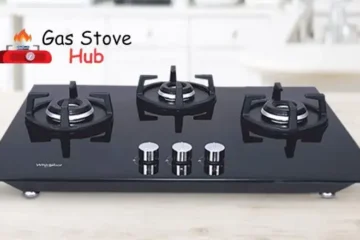Do you want to buy a Stove Guard and think Is Stove Guard Worth It or not? Read this post you will get all your answers.
Stove Guard has become an important part of stoves because it keeps them clean and safe. Stove Guard become a necessary item for those who want to keep their stove neat and clean as well as safe because it prevents accidental fires and burns in the kitchen. So you don’t have to think Is Stove Guard Worth It because it fulfills all your requirements.
In this post, you will read some extraordinary information about Stove guards like stove guard reviews, stove guards for gas stoves and stove guards for electric stoves, and FAQs about stove guards.
Contents
Introduction on Is Stove Guard Worth It
A stove Guard is an essential device specially designed to keep safe from accidental fires and burns in the kitchen. This device acts as a shield and reduces the risk of accidents that may happen in the kitchen. You will become calm after installing a stove guard in your kitchen.
How Does Stove Guard Work
Stove guards can detect different potential dangers and prevent accidents in your kitchen. Stove Guards features differ according to different manufacturers and models. Some stove guards are installed in the stove from the start while others are to be installed manually. These guards are typically connected to the stove’s power source and controlled through a control panel or interface.
There are mainly three types of stove guards, their types and how they work are given below.
Heat-Sensitive Guards:
This device has a heat-detecting sensor. This sensor helps to detect excessive heat or prolonged cooking. This stove guard is installed near the stove and monitors the temperature levels. This device will automatically cut the power supply when the temperature rises a potential fire hazard.
Motion-Sensing Guards:
This type of guard uses motion sensors to detect movement in the kitchen. It can differentiate between regular activity and hazardous situations such as someone leaving a pot unattended or a child approaching the stove. If no motion is detected for a specified period, the guard will assume a potential danger and activate the safety measures, such as turning off the stove.
Guards with Built-in Timers:
These guards incorporate timers that can be set by the user. If the stove is left unattended for a duration exceeding the set timer, the guard will activate and cut off the power to the stove. This type of guard is particularly useful for preventing accidents caused by forgetfulness or distractions.
Read Also: Auto Ignition Gas Stove | A Complete Guide to Pros and Cons
Benefits of Stove Guards
Here are some key advantages of using stove guards:
Fire Prevention:
One of the primary benefits of stove guards is their ability to prevent fires. By detecting and responding to potential hazards, such as unattended cooking or overheating, stove guards can automatically shut off the stove before a fire starts. This feature is especially valuable in households where cooking accidents are more likely to occur, such as those with children or elder people individuals.
Burn Prevention:
Stove guards also help prevent burns, which can be caused by accidental contact with hot stovetop surfaces or spilling hot liquids. By monitoring the stove’s temperature or detecting motion patterns, guards can intervene and turn off the stove before someone gets hurt. This is particularly important for households with young children, who may be curious and unaware of the dangers associated with stoves.
Increased Safety for Vulnerable Individuals:
Stove guards provide an extra layer of safety for vulnerable individuals, such as those with disabilities or cognitive impairments. These individuals may be more prone to accidents or forget to turn off the stove. Stove guards act as a safeguard, minimizing the risk of harm and providing peace of mind for both the individuals and their caregivers.
Peace of Mind:
Knowing that a stove guard is in place can bring peace of mind to homeowners. Whether it’s leaving the kitchen momentarily or being away from home for an extended period, having a stove guard installed can alleviate concerns about potential fire hazards. This increased sense of security allows individuals to focus on other tasks or enjoy their time without constantly worrying about the stove.
Insurance Premium Reduction:
Some insurance companies offer discounts on homeowners’ insurance premiums for households that have safety devices installed, including stove guards. By demonstrating a commitment to safety and risk reduction, homeowners can potentially lower their insurance costs, providing an additional financial benefit.
Limitations of Stove Guards
Along with benefits stove guards also has limitations. Here are some potential drawbacks of stove guards:
False Alarms:
Stove guards can sometimes trigger false alarms, leading to unnecessary stove shutdowns. Factors such as steam, smoke from cooking, or even certain cooking techniques may trigger the sensors, causing the guard to activate incorrectly. False alarms can be frustrating and may lead to users disabling or ignoring the guard, thereby compromising its effectiveness.
Detection Limitations:
Different types of stove guards may have limitations in detecting certain hazards. For instance, a heat-sensitive guard may not detect a small flame or a low-temperature fire, while a motion-sensing guard may not respond to situations where someone is standing close to the stove but not actively moving. It’s crucial to understand the specific capabilities and limitations of the chosen guard to ensure it aligns with the intended safety needs.
Compatibility and Installation:
Stove guards may have specific compatibility requirements with different types of stoves or cooktops. It is important to verify that the guard is suitable for the specific appliance and can be properly installed. Improper installation or incompatibility may affect the guard’s performance and reliability.
Interference with Cooking Activities:
Some users may find that stove guards interfere with their cooking activities. For example, if a guard with a built-in timer is set too short, it may shut off the stove while the user is still actively cooking. This can be inconvenient and disrupt the cooking process. Balancing safety needs with cooking convenience is essential when considering stove guard usage.
Cost and Maintenance:
Stove guards can vary in price, and the initial investment may be a consideration for some individuals. Additionally, there may be ongoing maintenance requirements, such as battery replacements or periodic sensor calibration, which can incur additional costs.
Conclusion
In the quest for kitchen safety, stove guards offer valuable benefits but also come with limitations. Consider your specific needs and circumstances before deciding if a stove guard is worth it for your home.




